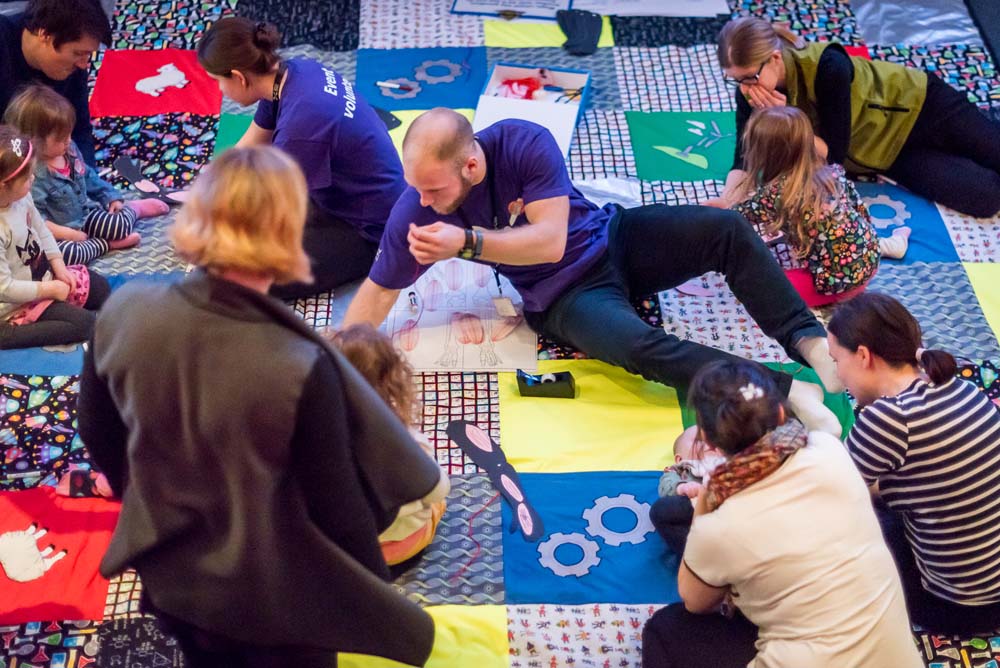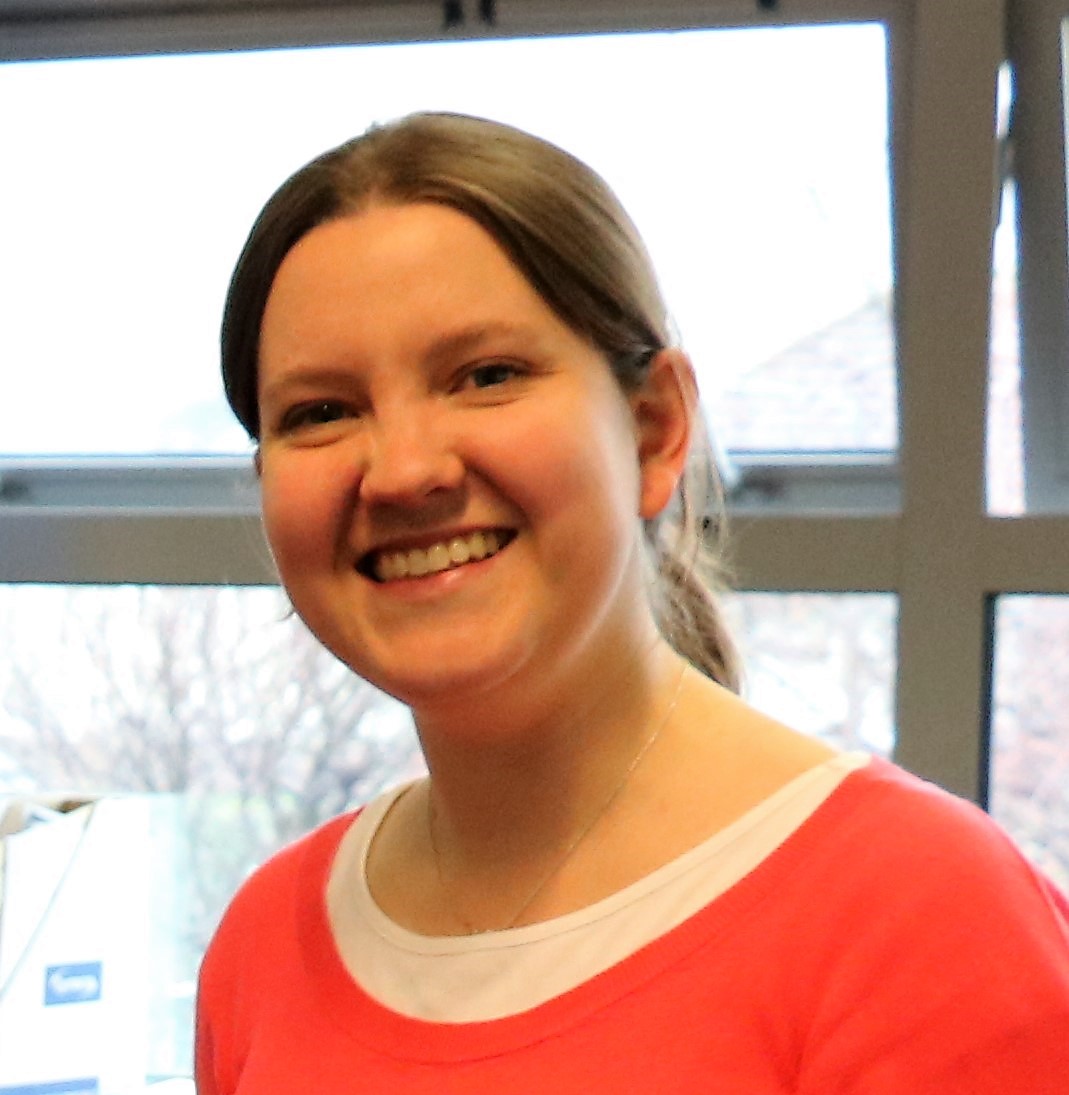What makes a Magic Carpet magic?
A tricky question from any three year old, even trickier from a three year old about to take part in a Magic Carpet session.
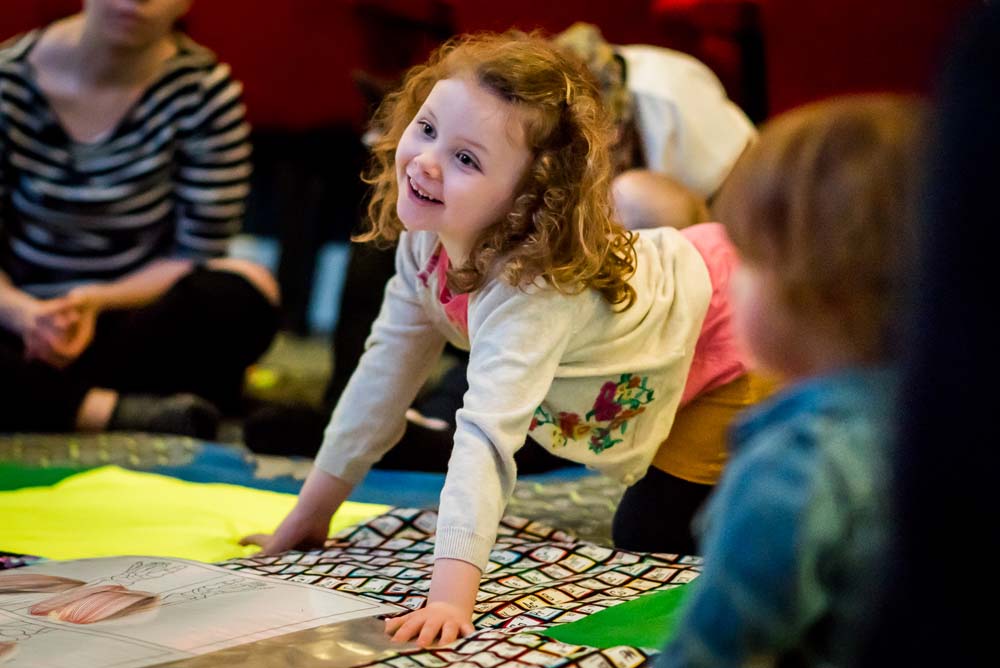
As part of our degree in Science Communication, my course-mate John and I are working at the National Museum of Scotland for eight weeks. As part of our placement, we were asked to write and deliver an anatomy-themed Magic Carpet session for three to five year olds. For some parents in Edinburgh, the Magic Carpet will be a familiar weekly event of singing, dancing, playing and crafting. Each session is themed and staff take the children on a magical journey using stories, objects and songs.
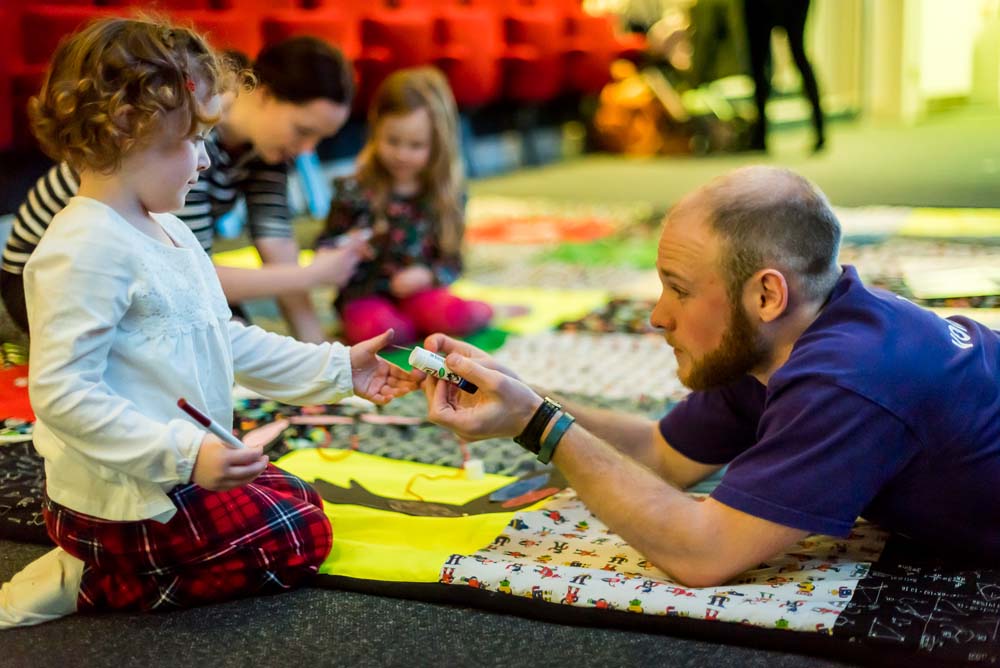
To us, the Magic Carpet was not a familiar concept. On our first day of placement we waited in the Grand Gallery to take part in a Magic Carpet Minis aimed at children up to two years old. A few minutes later we were sitting cross legged, singing about hot air balloons and handing out toy stars, much to the delight of ten toddlers. A far cry from our usual days of lectures!
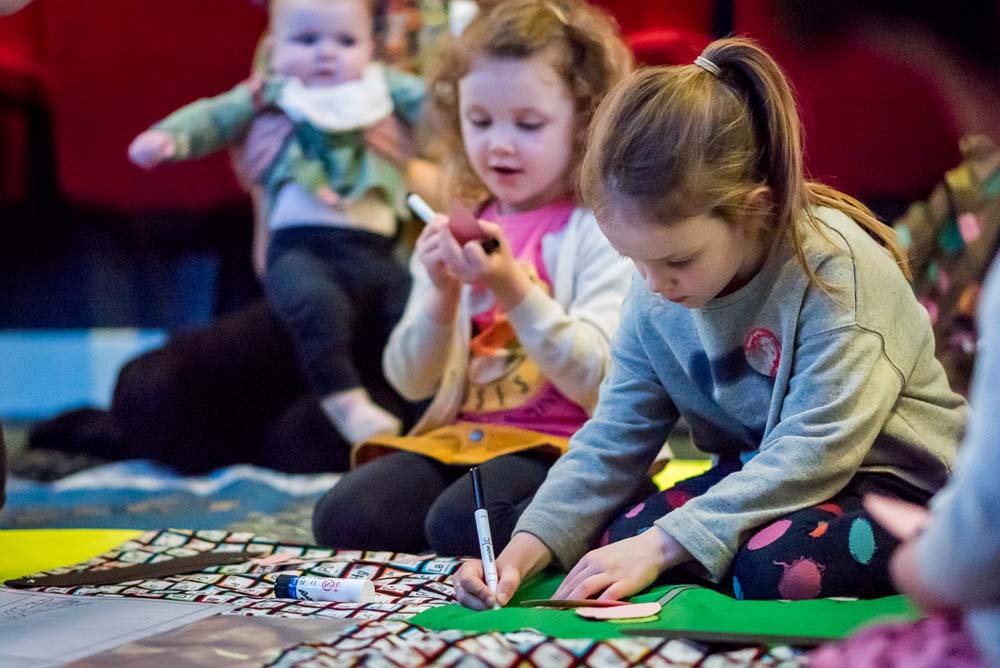
As the Anatomy Science Saturday started, we set up the Magic Carpet in the auditorium. Our session aimed to communicate how our muscles work and where they are in the body. Groups of enthusiastic children joined us, bouncing with energy and full of questions. Together with Stuart the Skeleton, we used our muscles to show off our dance moves and sang about the heart and lungs. We finished by making our own waving arm craft to take home.
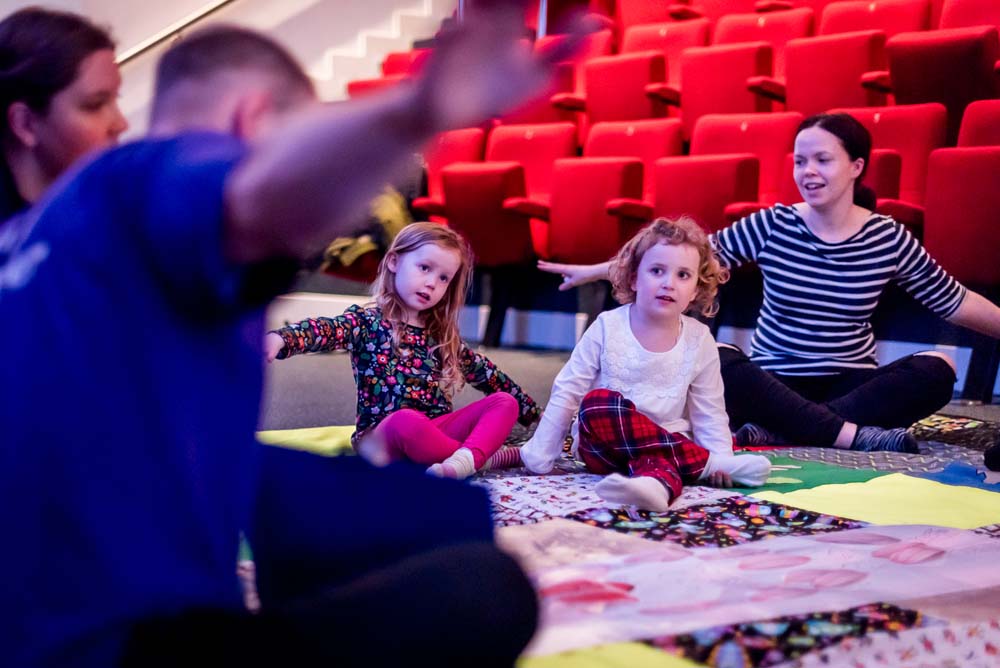
So, what makes a Magic Carpet magic?
For me it is seeing children (and their grown-ups!) singing, dancing and enjoying themselves whilst learning about science. Judging by the smiling faces of grown-ups and children as they left clutching their crafts, the Magic Carpet had worked its magic on their day too.
